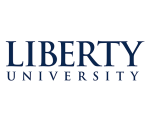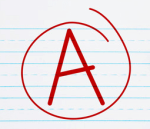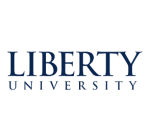Liberty University PHIL 201 quiz 4 complete solutions correct answers A+ work
- From Philosophy, General Philosophy

- Kmgina
- Rating : 186
- Grade : A+
- Questions : 0
- Solutions : 462
- Blog : 1
- Earned : $47433.48

Liberty University PHIL 201 quiz 4 complete solutions correct answers A+ work
More than 11 different versions
Question 1
Which of the following represents the key difference in thought from Descartes to Bacon?
Question 2
Which of the following can be classified as a priori knowledge?
Question 3
Knowledge arrived at immediately:
Question 4
Plato was hesitant to build a theory of knowledge on the physical world because
Question 5
By “Form” Plato is referring to the particular shape of an object of experience.
Question 6
Nancy believes that her brother, Peter, is currently in Paris. It is true that Peter is in Paris. According to the traditional definition of knowledge, can we say that Nancy knows her brother is in Paris:
Question 7
Scientific anti‑realism is the view that science does not claim objects like electrons actually exist. They are just a fictional construct to explain how things work. This view fits best with which truth theory:
Question 8
One problem with the coherence theory of truth is that it is not linked with the real world but only systems of beliefs.
Question 9
According to the pointecast presentation on truth theories, Coherence is a sufficient condition for truth, but it is not a necessary condition for truth.
Question 10
Plato develops the traditional view of knowledge in one particular book of his. What is the title of that specific book by Plato? (Note: “Complete Works” is not the answer.)
Question 11
A sufficient condition is:
Question 12
As long as justification is present, one can be assured that he/she has real knowledge.
Question 13
Though there are a variety of different forms of justification, the best form is empirical evidence.
Question 14
The problem with “True Opinion” is that:
Question 15
Knowledge has traditionally been defined as Justified, true, opinion.
Question 16
Pragmatism is epistemologically valuable for us since it helps us test truth claims.
Question 17
According to Dew and Foreman, the successes of modern science give us reason to think that we can speak of truth, search for truth, and make truth claims.
Question 18
Since coherentism and pragmatism fail as definitions of truth, we should refrain form using them as tests for truth.
Question 19
Anti‑realist Postmodern thinkers say that reality does not exist.
Question 20
According to Dew and Foreman, the coherentist perspective of truth has enjoyed the greatest and longest amount of support throughout history.
· Question 1
Plato holds that we obtain knowledge:
· Question 2
3 out of 3 points
Descartes believed that all men were born a tabula rasa.
· Question 3
3 out of 3 points
For Hume, which of the following would be a matter of fact:
· Question 4
3 out of 3 points
Hume’s fork consisted of:
· Question 5
3 out of 3 points
Which of the following is NOT one of the five sources of knowledge listed in Dew &
Foreman:
· Question 6
3 out of 3 points
According to the pointecast presentation on truth theories, Coherence is a sufficient condition for truth, but it is not a necessary condition for truth.
· Question 7
3 out of 3 points
The basis for Descartes knowledge of the material world was:
· Question 8
3 out of 3 points
Scientific anti-realism is the view that science does not claim objects like electrons actually exist. They are just a fictional construct to explain how things work. This view fits best with which truth theory:
· Question 9
3 out of 3 points
The truth theory that holds that a proposition is true if it correlates with reality is the
· Question 10
Needs Grading
The book by Plato from which we get our traditional definition of knowledge:
· Question 11
3 out of 3 points
Dew and Foreman claim that one minor concern with JTB is that the line between justification and truth seems a bit vague.
· Question 12
3 out of 3 points
The primary problem with Thales’ view of the earth is that he lacked justification for his belief.
· Question 13
3 out of 3 points
A ______________ is something we hold to be true.
· Question 14
3 out of 3 points
Epistemology is concerned with all the following types of questions except:
· Question 15
3 out of 3 points
As long as justification is present, one can be assured that he/she has real knowledge.
· Question 16
3 out of 3 points
Pragmatism is epistemologically valuable for us since it helps us test truth claims.
· Question 17
3 out of 3 points
The correspondence theory of truth is thought by some philosophers to be a pre-theoretic intuition that we philosophize with, not to.
· Question 18
3 out of 3 points
According to Dew and Foreman, the coherentist perspective of truth has enjoyed the greatest and longest amount of support throughout history.
· Question 19
3 out of 3 points
Pragmatist theories of truth focus mostly how well a set of belief “work” for a particular person.
· Question 20
3 out of 3 points
Anti-realist Postmodern thinkers say that reality does not exist.
Question 1
3 out of 3 points
Knowledge arrived at immediately:
Question 2
3 out of 3 points
For Locke, which of the ideas below would be a complex idea:
Question 3
3 out of 3 points
For Hume, which of the following would be a matter of fact:
Question 4
3 out of 3 points
The Aristotelian approach that Bacon critiqued was deduction.
Question 5
3 out of 3 points
By “Form” Plato is referring to the particular shape of an object of experience.
Question 6
3 out of 3 points
An argument used by Descartes to prove Gods existence:
Question 7
3 out of 3 points
The basis for Descartes knowledge of the material world was:
Question 8
3 out of 3 points
The statement, “I know how to play the xylophone” is an example of propositional knowledge.
Question 9
3 out of 3 points
Locke divided knowledge into matters of fact and relations of ideas.
Question 10
Needs Grading
The book by Plato from which we get our traditional definition of knowledge:
Question 11
3 out of 3 points
As long as justification is present, one can be assured that he/she has real knowledge.
Question 12
3 out of 3 points
Gettier Problems show that:
Question 13
3 out of 3 points
Epistemology might is best described as “the study of Knowledge.”
Question 14
3 out of 3 points
Epistemology is concerned with all the following types of questions except:
Question 15
3 out of 3 points
Dew and Foreman claim that one minor concern with JTB is that the line between justification and truth seems a bit vague.
Question 16
3 out of 3 points
For a statement to be true, it need not correspond to reality, it need only be consistent with everything else that we believe to be true.
Question 17
3 out of 3 points
Tests for truth help us to comprehend the essence of truth itself.
Question 18
3 out of 3 points
Coherentism uses which metaphor to illustrate how our beliefs relate to each other?
Question 19
3 out of 3 points
Anti-realist Postmodern thinkers say that reality does not exist.
Question 20
3 out of 3 points
According to Dew and Foreman, the coherentist perspective of truth has enjoyed the greatest and longest amount of support throughout history.
Question 1
According to Hume, why can we never arrive at certainty?
Question 2
Hume’s fork consisted of:
Question 3
The philosopher who arrived at certainty through a process of doubting all of his knowledge was:
Question 4
According to Plato, how do we gain genuine knowledge?
Question 5
For Plato, the realm where things are constantly in a flux and changing is:
Question 6
The one below that is NOT one of the necessary criteria for the traditional definition of knowledge:
Question 7
The elements of a proposition include:
Question 8
One problem with the coherence theory of truth is that it is not linked with the real world but only systems of beliefs.
Question 9
Rationalism holds that all knowledge is arrived at through the reason and rejects any use of the senses at all.
Question 10
Plato develops the traditional view of knowledge in one particular book of his. What is the title of that specific book by Plato? (Note: “Complete Works” is not the answer.)
Question 11
Which is not one of the ways the word “know” might be used?
Question 12
In response to the Gettier Problem, Keith Lerher and Thomas Paxson revise JTB as:
Question 13
Gettier examples are aimed at showing that JTB is not a necessary condition of truth.
Question 14
Though there are a variety of different forms of justification, the best form is empirical evidence.
Question 15
As long as justification is present, one can be assured that he/she has real knowledge.
Question 16
For a statement to be true, it need not correspond to reality, it need only be consistent with everything else that we believe to be true.
Question 17
Postmodern antirealism argues that our perception comes to us through the subjective filters of our minds.
Question 18
Definitions of truth tell us the best ways to identify truth.
Question 19
Antirealist
Postmodern thinkers say that reality does not exist.
Question 20
Which of the following is not one of the reasons Dew and Foreman give to show that truth really does exist.
Question 1
3 out of 3 points
For Locke, which of the ideas below would be a complex idea:
· Question 2
3 out of 3 points
According to Dew and Foreman, faith is one of the sources of knowledge.
· Question 3
3 out of 3 points
The Aristotelian approach that Bacon critiqued was deduction.
· Question 4
3 out of 3 points
Epicureans held to empiricism because:
· Question 5
3 out of 3 points
According to Hume, why can we never arrive at certainty?
· Question 6
3 out of 3 points
In the end Kant concluded
· Question 7
3 out of 3 points
The truth theory that holds that a proposition is true if it correlates with reality is the
· Question 8
3 out of 3 points
Nancy believes that her brother, Peter, is currently in Paris. It is true that Peter is in Paris. According to the traditional definition of knowledge, can we say that Nancy knows her brother is in Paris:
· Question 9
3 out of 3 points
Locke divided knowledge into matters of fact and relations of ideas.
· Question 10
Plato develops the traditional view of knowledge in one particular book of his. What is the title of that specific book by Plato? (Note: “Complete Works” is not the answer.)
· Question 11
3 out of 3 points
A sufficient condition is:
· Question 12
3 out of 3 points
The problem with “True Opinion” is that:
· Question 13
3 out of 3 points
Knowledge has traditionally been defined as Justified, true, opinion.
· Question 14
3 out of 3 points
We should study epistemology so that we can find confidence on the biggest questions of life.
· Question 15
3 out of 3 points
In response to the Gettier Problem, Keith Lerher and Thomas Paxson revise JTB as:
· Question 16
3 out of 3 points
Coherentism uses which metaphor to illustrate how our beliefs relate to each other?
· Question 17
3 out of 3 points
In coherentist theories of truth, the primary concern is how well (or consistently) one belief fits with all the other beliefs within the system.
· Question 18
3 out of 3 points
According to Dew and Foreman, the successes of modern science give us reason to think that we can speak of truth, search for truth, and make truth claims.
· Question 19
3 out of 3 points
Postmodern anti-realism argues that our perception comes to us through the subjective filters of our minds.
· Question 20
3 out of 3 points
Pragmatism is epistemologically valuable for us since it helps us test truth claims.
Question 1
Those holding to some form of externalism in rationality tend to argue that, since it is impossible for persons to have any cognitive access to the reasons and evidence that support some of a person’s beliefs, internalists cannot be right with respect to their account of justification for all beliefs.
Question 2
While Clifford’s form of evidentialism may have its difficulties, most contemporary epistemologists agree that it is, at the very least, not a selfdefeating position, and this is part of what makes it a good option for epistemic justification.
Question 3
Externalism in epistemology is an approach to rationality which argues that
Question 4
Ginger believes that the dog she sees in her neighbor’s back yard is her own Labrador Retriever named Sam. Since there are no other Labrador Retrievers in the neighborhood fitting the same description as Sam, and since the dog Ginger sees in her neighbor’s yard seems to recognize Ginger’s voice when she calls out to it, Ginger quite naturally believes the dog in her neighbor’s back yard is her dog Sam. It turns out, however, that the dog in her neighbor’s back yard is in fact not Ginger’s dog but the Labrador of a visiting relative of her neighbor. On an internalist account of justification, since it turns out not to be true that Ginger saw her dog Sam in her neighbor’s back yard, Ginger was not justified in believing it was her own dog in the first place.
Question 5
Select the one below that does NOT belong: The justification of one’s beliefs is a matter that deals with
Question 6
The internalist in terms of epistemic justification thinks that
Question 7
Hume thinks that, while we may assume connections of causality (i.e., every event has a cause), we never actually perceive a necessary connection of causality and therefore we cannot know a causal connection has actually occurred.
Question 8
The one below that it NOT a reason Hume argued against the principle of causality:
Question 9
One of the factors that fuels skepticism is our inability to demonstrate epistemic certainty about many of the beliefs we think are true.
Question 10
Sextus Empiricus adopted a version of Pyhrro’s skepticism mainly because he believed that
Question 11
To say that it is impossible to have knowledge is itself a claim to knowledge, and is for that reason a selfdefeating assertion.
Question 12
One of the philosophical benefits of skepticism is that
Question 13
A major criticism that internalism raises against externalism is:
Question 14
To say that a belief is defeasible is to say:
Question 15
The motivation behind externalism is:
Question 16
When considering our noetic structure we recognize that we hold beliefs in varying degrees of strength.
Question 17
According to externalism, there is really no way to test if one’s memories are reliable, but, in the absence of defeaters, one is reasonable in holding that they are.
Question 18
Coherentism holds that some beliefs are more foundational than others.
Question 19
Coherentism holds that some beliefs are more foundational than others.
Question 20
Kant said that belief in God's existence is a claim of metaphysical knowledge, and that we cannot have knowledge of such metaphysical claims. At the same time he said there is good reason to believe in the existence of God. What was his reason?
Question 1
Plato was hesitant to build a theory of knowledge on the physical world because
Question 2
Plato’s forms exist apart from the physical objects that they represent in the world experienced by our senses.
Question 3
Descartes believed that all men were born a tabula rasa.
Question 4
Which of the following is NOT one of the reasons that epistemologists are generally hesitant to accept testimony as a source of knowledge:
Question 5
For Hume, which of the following would be a matter of fact:
Question 6
Scientific antirealism is the view that science does not claim objects like electrons actually exist. They are just a fictional construct to explain how things work. This view fits best with which truth theory:
Question 7
The type of knowledge epistemology is primarily concerned with:
Question 8
The statement, “I know how to play the xylophone” is an example of propositional knowledge.
Question 9
An argument used by Descartes to prove Gods existence:
Question 10
Plato develops the traditional view of knowledge in one particular book of his. What is the title of that specific book by Plato? (Note: “Complete Works” is not the answer.)
Question 11
Dew and Foreman claim that one minor concern with JTB is that the line between justification and truth seems a bit vague.
Question 12
The study of epistemology has had positive impact of which of the following?
Question 13
As long as justification is present, one can be assured that he/she has real knowledge.
Question 14
A sufficient condition is:
Question 15
Epistemology might is best described as “the study of Knowledge.”
Question 16
Which of the following is not one of the reasons Dew and Foreman give to show that truth really does exist.
Question 17
In coherentist theories of truth, the primary concern is how well (or consistently) one belief fits with all the other beliefs within the system.
Question 18
Pragmatism is epistemologically valuable for us since it helps us test truth claims.
Question 19
Since coherentism and pragmatism fail as definitions of truth, we should refrain form using them as tests for truth.
Question 20
The correspondence theory of truth holds that statements are true when they correspond to the real state of affairs in the world.
Question 1 According to Dew and Foreman, faith is one of the sources of knowledge.
Question 2 According to Hume, why can we never arrive at certainty?
Question 3 Hume’s fork consisted of:
Question 4 Epicureans held to empiricism because:
Question 5 Knowledge arrived at immediately:
Question 6 An argument used by Descartes to prove Gods existence:
Question 7 Locke divided knowledge into matters of fact and relations of ideas.
Question 8 The elements of a proposition include:
Question 9 Scientific antirealism is the view that science does not claim objects like electrons actually exist. They are just a fictional construct to explain how things work. This view fits best with which truth theory:
Question 10 Plato develops the traditional view of knowledge in one particular book of his. What is the title of that specific book by Plato? (Note: “Complete Works” is not the answer.)
Question 11 A sufficient condition is:
Question 12 In response to the Gettier Problem, Keith Lerher and Thomas Paxson revise JTB as:
Question 13 We should study epistemology so that we can find confidence on the biggest questions of life.
Question 14 Epistemology might is best described as “the study of Knowledge.”
Question 15 Gettier Problems show that:
Question 16 Which of the following is NOT a problem with Pragmatism:
Question 17 The correspondence theory of truth is thought by some philosophers to be a pretheoretic intuition that we philosophize with, not to.
Question 18 According to Dew and Foreman, if something exists, then something must be true of about the things that exists.
Question 19 Postmodern antirealism argues that our perception comes to us through the subjective filters of our minds.
Question 20 Tests for truth are meant to define the nature of truth itself.
Question 1 Which of the following can be classified as a priori knowledge?
Question 2 Which of the following is NOT one of the five sources of knowledge listed in Dew & Foreman:
Question 3 The Aristotelian approach that Bacon critiqued was deduction.
Question 4 According to Dew and Foreman, faith is one of the sources of knowledge.
Question 5 According to Plato, how do we gain genuine knowledge?
Question 6 In the end Kant concluded
Question 7 The philosopher who believed we are born with innate “categories of understanding” was:
Question 8 By “noumena” Kant is referring to
Question 9 According to Plato, the process by which we know things in the world is called:
Question 10 Plato develops the traditional view of knowledge in one particular book of his. What is the title of that specific book by Plato? (Note: “Complete Works” is not the answer.)
Question 11 Gettier examples are aimed at showing that JTB is not a necessary condition of truth.
Question 12 A sufficient condition is:
Question 13 As long as justification is present, one can be assured that he/she has real knowledge.
Question 14 The study of epistemology has had positive impact of which of the following?
Question 15 Even after the Gettier problem, Dew and Foreman think that JTB is still at least a necessary condition for knowledge.
Question 16 Pragmatism is epistemologically valuable for us since it helps us test truth claims.
Question 17 Tests for truth are meant to define the nature of truth itself.
Question 18 Which of the following is not one of the reasons Dew and Foreman give to show that truth really does exist.
Question 19 The correspondence theory of truth is thought by some philosophers to be a pretheoretic intuition that we philosophize with, not to.
Question 20 Antirealist Postmodern thinkers say that reality does not exist.
Question 1 By “Form” Plato is referring to the particular shape of an object of experience.
Question 2 Plato was hesitant to build a theory of knowledge on the physical world because
Question 3 Descartes believed that all men were born a tabula rasa.
Question 4 Knowledge arrived at immediately:
Question 5 For Locke, which of the ideas below would be a complex idea:
Question 6 The type of knowledge epistemology is primarily concerned with:
Question 7 The philosopher who believed we are born with innate “categories of understanding” was:
Question 8 The basis for Descartes knowledge of the material world was:
Question 9 In the end Kant concluded
Question 10 Plato develops the traditional view of knowledge in one particular book of his. What is the title of that specific book by Plato? (Note: “Complete Works” is not the answer.)
Question 11 The primary problem with Thales’ view of the earth is that he lacked justification for his belief.
Question 12 Gettier examples are aimed at showing that JTB is not a necessary condition of truth.
Question 13 Gettier Problems show that:
Question 14 As long as justification is present, one can be assured that he/she has real knowledge.
Question 15 Even after the Gettier problem, Dew and Foreman think that JTB is still at least a necessary condition for knowledge.
Question 16 Antirealist Postmodern thinkers say that reality does not exist.
Question 17 Which of the following has been the dominant theory of truth for most of history?
Question 18 The correspondence theory of truth holds that statements are true when they correspond to the real state of affairs in the world.
Question 19 Postmodern antirealism argues that our perception comes to us through the subjective filters of our minds.
Question 20 Pragmatism is epistemologically valuable for us since it helps us test truth claims.
Question 1 Plato’s forms exist apart from the physical objects that they represent in the world experienced by our senses.
Question 2 Which of the following represents the key difference in thought from Descartes to Bacon?
Question 3 For Hume, which of the following would be a matter of fact:
Question 4 For Plato, the realm where things are constantly in a flux and changing is:
Question 5 According to Hume, why can we never arrive at certainty?
Question 6 “To affirm that something as true in a propositional form” is the definition of
Question 7 The elements of a proposition include:
Question 8 The type of knowledge epistemology is primarily concerned with:
Question 9 Rationalism holds that all knowledge is arrived at through the reason and rejects any use of the senses at all.
Question 10 Plato develops the traditional view of knowledge in one particular book of his. What is the title of that specific book by Plato? (Note: “Complete Works” is not the answer.)
Question 11 Knowledge has traditionally been defined as Justified, true, opinion.
Question 12 Even after the Gettier problem, Dew and Foreman think that JTB is still at least a necessary condition for knowledge.
Question 13 The problem with “True Opinion” is that:
Question 14 In order to count as knowledge, there must be some form of justification for the claim.
Question 15 Dew and Foreman claim that one minor concern with JTB is that the line between justification and truth seems a bit vague.
Question 16 Pragmatist theories of truth focus mostly how well a set of belief “work” for a particular person.
Question 17 Which of the following has been the dominant theory of truth for most of history?
Question 18 Tests for truth are meant to define the nature of truth itself.
Question 19 Coherentism uses which metaphor to illustrate how our beliefs relate to each other?
Question 20 Definitions of truth tell us the best ways to identify truth.
[Solved] Liberty University PHIL 201 quiz 4 complete solutions correct answers A+ work
- This Solution has been Purchased 80 time
- Average Rating for this solution is A+
- Submitted On 24 Sep, 2016 07:18:11

- Kmgina
- Rating : 186
- Grade : A+
- Questions : 0
- Solutions : 462
- Blog : 1
- Earned : $47433.48


Liberty University ENGL 101 Mindtap 6 assignment complete solutions correct answers updated

Liberty University ENGL 101 Mindtap 2 assignment complete solutions correct answers updated

BUSI 330 Quiz 7 Liberty University Complete Answers

ECON 213 Problem Set ch. 9 Liberty University Complete Answers

ECON 213 InQuizitive ch. 13 Liberty University Complete Answers
The benefits of buying study notes from CourseMerits

Assurance Of Timely Delivery
We value your patience, and to ensure you always receive your homework help within the promised time, our dedicated team of tutors begins their work as soon as the request arrives.
Best Price In The Market
All the services that are available on our page cost only a nominal amount of money. In fact, the prices are lower than the industry standards. You can always expect value for money from us.


